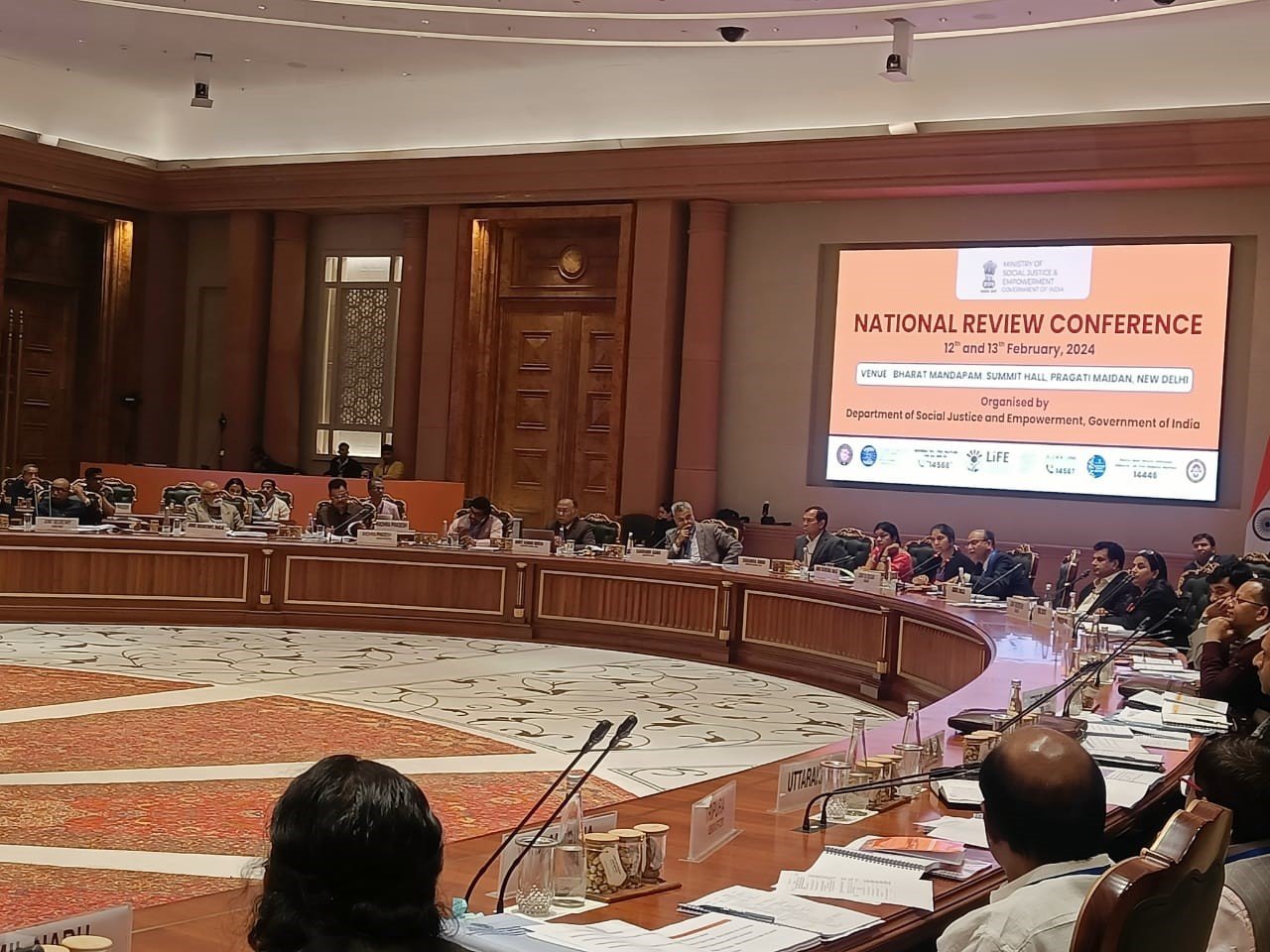The Ministry of Social Justice and Empowerment, Government of India, hosted a two-day National Review Conference at Bharat Mandapam, Summit Hall, Pragati Maidan, New Delhi, on February 12 and 13, informed the Press Information Bureau. Under the chairmanship of the Secretary, Saurabh Garg, Department of Social Justice and Empowerment, the conference witnessed a gathering of Principal Secretaries/Secretaries from all States/Union Territories, alongside senior officers from the Department.
The conference encompassed critical discussions aimed at extending support to different marginalized groups, including Scheduled Castes (SCs), Other Backward Classes (OBCs), Economically Weaker Section (EWS) and Denotified Tribes (DNTs). Sessions addressed the needs of senior citizens, providing assistance to victims of substance abuse, discussed issues pertinent to the transgender community, and highlighted challenges faced by sanitation workers.
Key initiatives were highlighted, including the launch of the National Portal for Transgender Persons on 25 November, 2020, with over 17,000 certificate/ID cards issued since inception. Urging proactive steps, discussions emphasized setting up shelter homes, issuing certificates through the portal, and ensuring a discrimination-free environment for transgender individuals. Currently, 12 operational shelter homes for transgender persons offer rehabilitation and mainstreaming services across the country. The Swachh Bharat Mission (Urban) has integrated dedicated toilets for transgender persons into its policy guidelines.

Implementation of schemes such as the Atal Vayo Abhyuday Yojana (AVYAY) and the Maintenance and Welfare of Parents and Senior Citizens Act, 2007, have been pivotal in prioritizing the well-being of senior citizens across India. These initiatives underscore the government’s commitment to facilitating suitable land for Senior Citizens’ Homes and creating a pool of 3180 trained Geriatric Caregivers.
The Rashtriya Vayoshri Yojana (RVY) stands as a testament to the government’s dedication to providing assistance to senior citizens suffering from age-related disabilities. Through this scheme, assistive living devices are distributed to individuals, enabling them to regain near-normal functionality despite disabilities such as low vision, hearing impairment, loss of teeth, and loco-motor disabilities. To date, 12,91,013 assistive devices have been distributed to 3,15,823 beneficiaries across 307 camps nationwide, informed the PIB.
Dedicated to senior citizens, the Elder Line initiative, comprising a Connect Centre offers essential services. Categorized into Information, Guidance, Support, and Intervention, it covers a wide range of senior citizens’ needs. This initiative has already received a substantial response, with a total of 23,40,393 calls received. Among these calls, 73,910 pertained to information inquiries, 1,39,669 sought guidance, and 22,730 required field intervention. With a toll-free number, 14567, seniors can easily access assistance for various issues, from medical referrals to legal guidance and emotional support. In addition to these initiatives, the Ministry extends its support to 627 old age homes throughout India, providing a conducive environment for senior citizens.
The impactful role of The Scheme for Economic Empowerment of DNTs (SEED) in fostering economic independence was highlighted, with annual coaching for 1,250 students, health coverage of Rs. 5 lakhs per family per year under PMJAY, and financial aid for housing construction under PMAY-G.
Further discussions addressed the Credit Support to Sanitation Workers initiative by NSKFDC, facilitating access to financial resources for 2.57 lakhs of sanitation workers since 2014-15, with total credit support provided amounting to Rs. 1800 crores. As of January 31, 2024, NSKFDC disbursed loans totaling Rs. 112 crore, benefiting 17,796 beneficiaries in the fiscal year 2023-24. Under the SWACHHTA UDYAMI YOJANA (SUY), NSKFDC offers concessional loans of up to Rs. 50 lakh per unit.
NSKFDC continues its steadfast support for marginalized communities, particularly Safai Karamcharis, Manual Scavengers, and their dependents. Offering concessional rates of interest. Moreover, NSKFDC prioritizes women’s empowerment through dedicated schemes like Mahila Samridhi Yojana (MSY) and Mahila Adhikarita Yojana (MAY), ensuring maximum coverage of women beneficiaries. This underscores NSKFDC’s commitment to fostering socio-economic upliftment and gender equality within marginalized communities.
Productive discussions were held with states and Union Territories regarding the implementation of the Nasha Mukt Bharat Abhiyaan (NMBA), focusing on youth and educational institutions. States pledged to intensify drug demand reduction activities in border regions and establish deaddiction facilities in areas affected by poppy cultivation. Since the launch of NMBA, there has been a remarkable 62 percent increase in awareness about substance use and help-seeking behavior, reaching over 11 crore people nationwide.
Download Nagaland Tribune app on Google Play

Rehabilitation facilities have seen augmentation, with 136 new facilities established. On February 8, the Union Minister of State for Social Justice and Empowerment inaugurated 41 Addiction Treatment Facilities (ATFs). The number of beneficiaries has increased from 2,08,415 to 3,39,588 since the launch of NMBA.
The status of the implementation of the SC/ST (PoA) Act, 1989, including the State/UT wise charge sheet filing rate and pendency of cases in courts in the year 2022 was also reviewed. It was noted that in the F.Y 2022-23, about 15,000 inter-caste marriage Couples have been provided incentives, and Central Assistance of Rs. 392.70 Crores has been released to the States/UTs.
The latter part of the conference encompassed discussions on Pradhan Mantri Dakshta Aur Kushalta Sampann Hitgrahi (PM-Daksh). In the fiscal years 2020-21 to 2022-23, significant achievements were recorded in training and placement. A total of 1,07,120 candidates received training, with 77,237 trainees successfully placed.
The session concluded with comprehensive discussions on crucial topics such as PFMS/SNA, Training and Capacity Building activities by NISD, Website and Portal Management by NIC, and an overview of Social Audit and Evaluation Studies, among other related issues. The conference marked a fruitful gathering aimed at fostering inclusive growth and empowerment across the nation.

